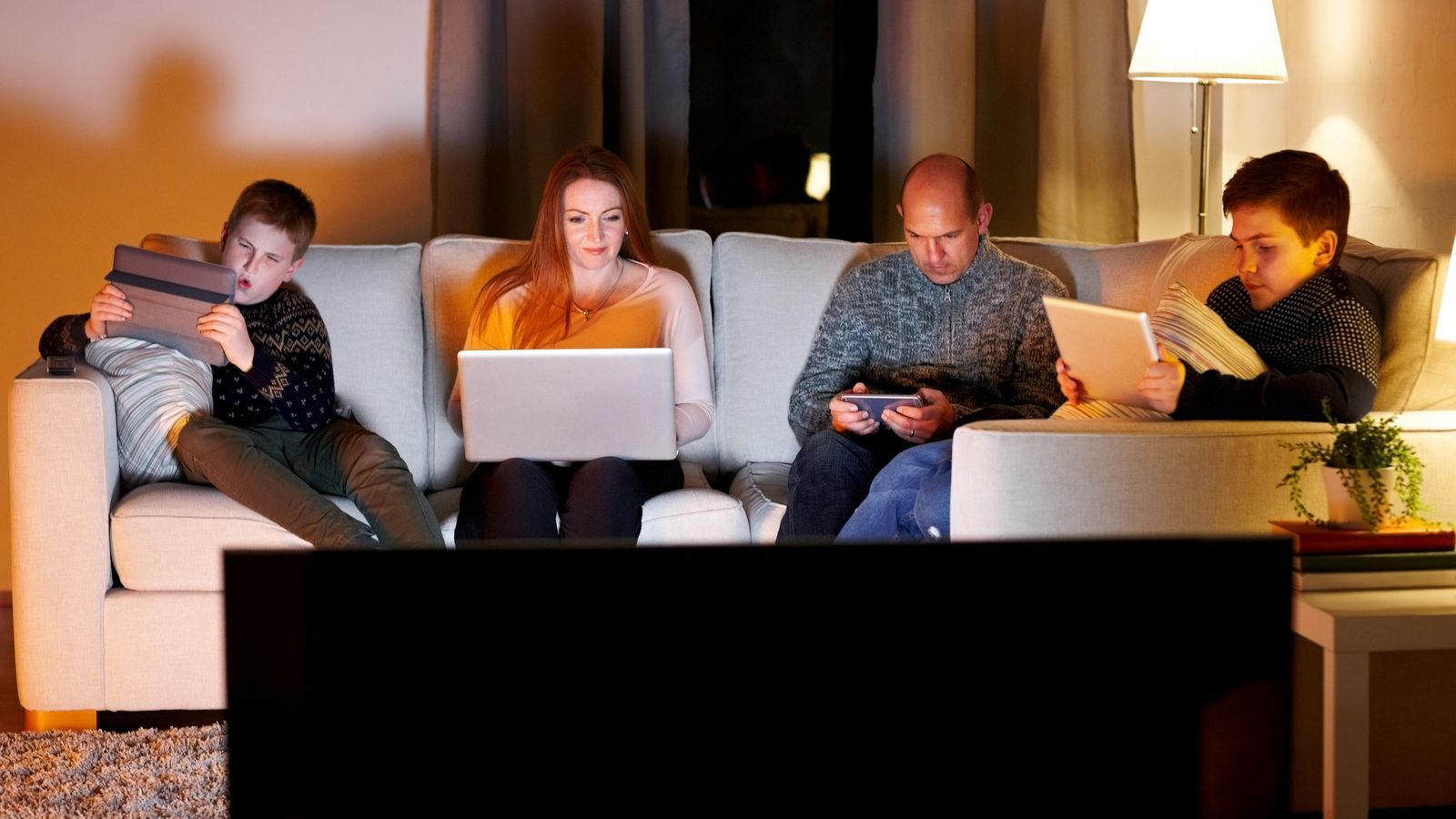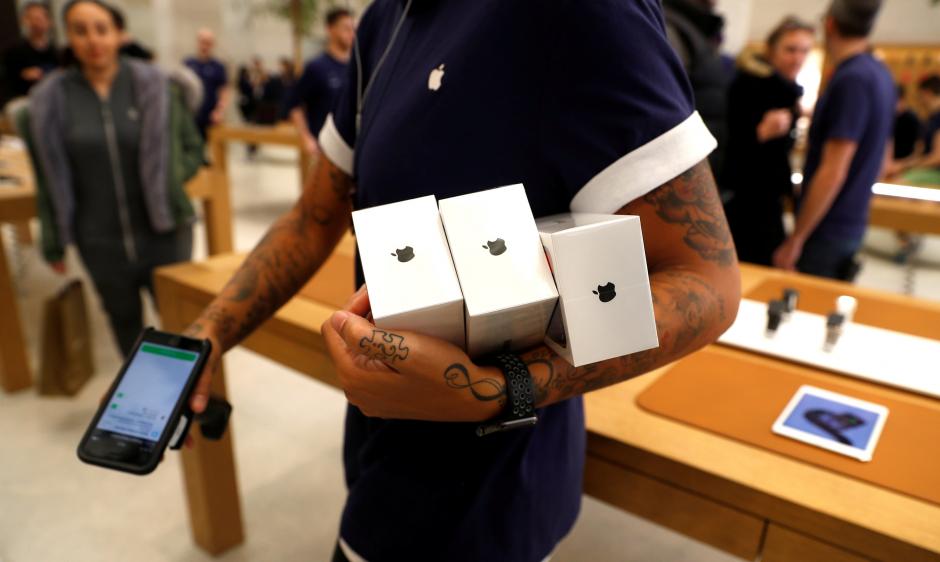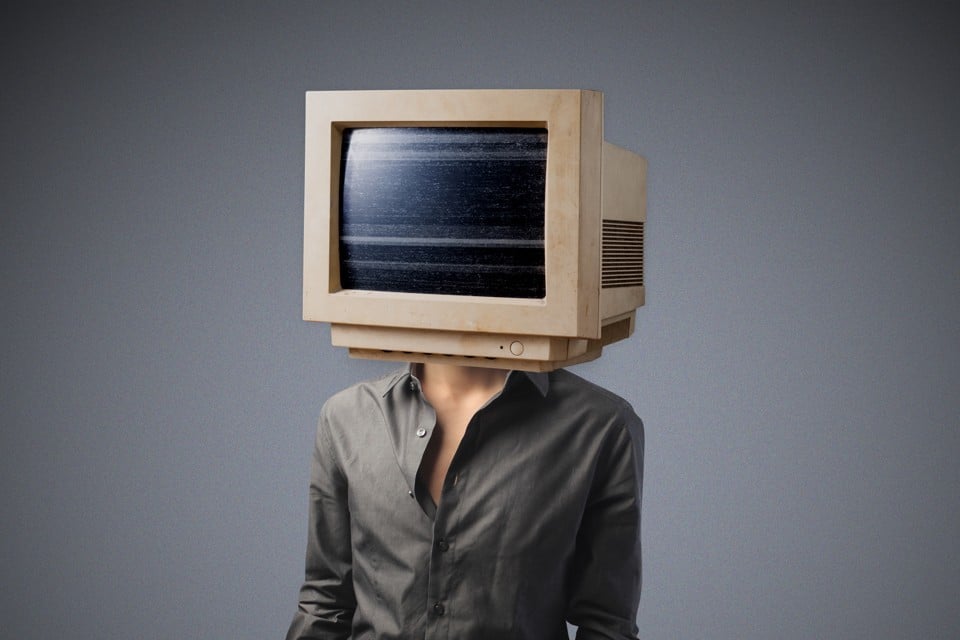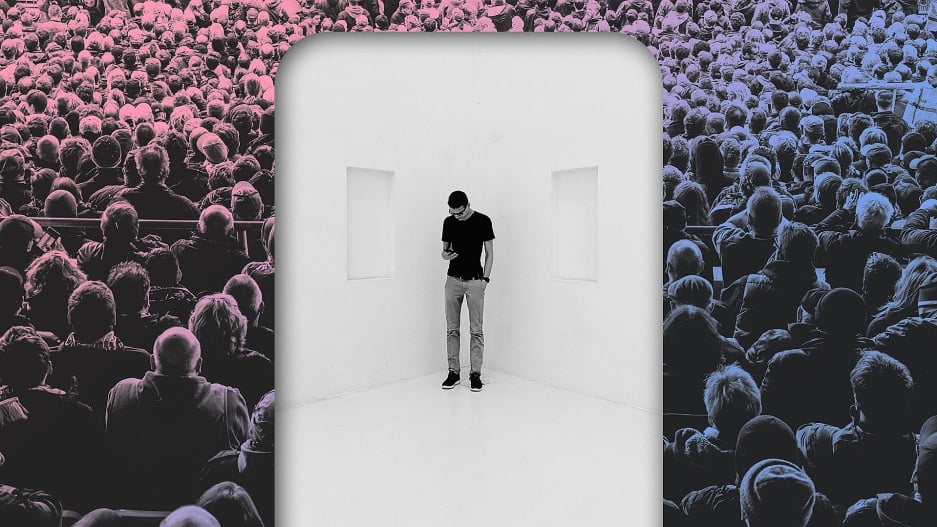
Resources
Early Facebook and Google employees are planning to lobby against tech addiction
A new alliance made up of former Silicon Valley cronies has assembled to challenge the technological Frankenstein they’ve collectively created. “The Center for Humane Technology” is a group comprising former employees and pals of Google, Facebook, and Mozilla. The nonprofit hopes that it can raise awareness about the societal tolls of technology, which its members believe are inherently addictive. The group will lobby for a bill to research the effects of technology on children’s health.
On Feb. 7, the group’s members will participate in a conference focused on digital health for kids, hosted by the nonprofit Common Sense.
The group also plans an anti-tech addiction ad campaign at 55,000 schools across America, and has another $50 million in media airtime donated by partners which include Comcast and DirecTV.
The group’s co-founder, a former Google design ethicist, told Quartz that tech companies “profit by drilling into our brains to pull the attention out of it, by using persuasion techniques to keep [us] hooked.” And the group’s web page argues that “What began as a race to monetize our attention is now eroding the pillars of our society: mental health, democracy, social relationships, and our children.”
Facebook Really Wants You to Come Back
The social network is getting aggressive with people who don’t log in often, working to keep up its engagement numbers.
It’s been about a year since Rishi Gorantala deleted the Facebook app from his phone, and the company has only gotten more aggressive in its emails to win him back. The social network started out by alerting him every few days about friends that had posted photos or made comments—each time inviting him to click a link and view the activity on Facebook. He rarely did.
Then, about once a week in September, he started to get prompts from a Facebook security customer-service address. “It looks like you’re having trouble logging into Facebook,” the emails would say. “Just click the button below and we’ll log you in. If you weren’t trying to log in, let us know.” He wasn’t trying. But he doesn’t think anybody else was, either.
“The content of mail they send is essentially trying to trick you,” said Gorantala, 35, who lives in Chile. “Like someone tried to access my account so I should go and log in.”
Study links decline in teenagers’ happiness to smartphones
A precipitous drop in the happiness, self-esteem and life satisfaction of American teenagers came as their ownership of smartphones rocketed from zero to 73 percent and they devoted an increasing share of their time online. Coincidence? New research suggests it is not. In a study published Monday in the journal Emotion, psychologists from San Diego State University and the University of Georgia used data on mood and media culled from roughly 1.1 million U.S. teens to figure out why a decades-long rise in happiness and satisfaction among U.S. teenagers suddenly shifted course in 2012 and declined sharply over the next four years.
In the new study, researchers tried to find it by plumbing a trove of eighth-, 10th- and 12th-graders’ responses to queries on how they felt about life and how they used their time. They found that between 1991 and 2016, adolescents who spent more time on electronic communication and screens — social media, texting, electronic games, the internet — were less happy, less satisfied with their lives and had lower self-esteem. TV watching, which declined over the nearly two decades they examined, was similarly linked to lower psychological well-being.
By contrast, adolescents who spent more time on non-screen activities had higher psychological well-being. They tended to profess greater happiness, higher self-esteem and more satisfaction with their lives. While these patterns emerged in the group as a whole, they were particularly clear among eighth- and 10th-graders, the authors found: “Every non-screen activity was correlated with greater happiness, and every screen activity was correlated with less happiness.”
You spend nearly a whole day each week on the internet
Since 2000, our time spent online each week has steadily increased, rising from 9.4 hours to 23.6 hours — nearly an entire day, according to a recent report by the USC Annenberg Center for the Digital Future. The internet has become an integral component of our home lives as well, with time spent rising more than 400 percent over that period from 3.3 hours to 17.6 hours each week, according to the report, which surveys more than 2,000 people across the U.S. each year. The center’s 15th annual Digital Future Report illustrates the internet’s dramatic evolution since 2000 from a secondary medium to an indispensable component of our daily lives — always on and always with us. It also comes as many fear for the future of the unlimited internet we have largely taken for granted over the past two decades. The report also found that the internet has had a dramatic impact on how we get our news. News consumption for all ages went from a print-to-online ratio of 85-15 in 2001 to a near even 51-49 in 2016.
Smartphone addiction could be changing your brain
You may be one of the growing number of Americans (or global citizens) who has a bit of nomophobia.
“Nomophobia?” you mutter as you read this on your ever-present smartphone. “Of course not.”
“NO MObile PHOne phoBIA” is a 21st-century term for the fear of not being able to use your cell phone or other smart device. Cell phone addiction is on the rise, surveys show, and a new study released Thursday adds to a growing body of evidence that smartphone and internet addiction is harming our minds – literally.
SecurEnvoy, a two-factor authentication company, conducted research using a polling panel (which is not as scientific as a randomized poll) and found that 66% of people in the United Kingdom have some form of nomophobia. Notably, 41% of the participants said they had two or more phones to make sure they stayed connected.
Surveys by the Pew Research Center this year showed that 77% of Americans own smartphones, up from 35% in 2011. Ninety-five percent own a cell phone of some kind.
Obviously, there are some serious ramifications to having a cell phone habit. According to the US Centers for Disease Control and Prevention, mobile phone use is partially to blame for the distracted driving that kills an estimated nine people each day and injures more than 1,000.
The prevalence of texting while driving has reached epidemic proportions. A 2010 study by the Pew Research Center said nearly half of US adults admit reading or sending a text message while driving. The news is worse for teens: Nearly one in three 16- or 17-year-olds said they have texted while driving.
woman sleeping under coversYour smartphone may be hurting your sleep
Millennials are the worst offenders, according to Pew. Fifty-nine percent of people between the ages of 18 and 33 reported texting while driving, compared with 50% of Gen Xers (age 34 to 45) and only 29% of baby boomers.
It’s not just driving. A study of pedestrians in midtown Manhattan found that 42% of those who entered traffic during a “Don’t Walk” signal were talking on a cell phone, wearing headphones or looking down at an electronic device. A 2013 study found a tenfold increase in injuries related to pedestrians using cell phones from 2005 to 2010.
Other health ramifications include text neck – that cramping, stabbing pain that comes after looking down at your phone too long – and poor posture, which can affect your spine, respiratory functions and even emotions. Researchers have also found that the blue light emitted from our cell phones and other internet devices can disrupt melatonin production and therefore our sleep.
A connection to executive functioningThe latest evidence comes from a small study presented Thursday at the annual meeting of the Radiological Society of North America in Chicago. The study, which has not been peer-reviewed, indicates that cell phone addiction may affect brain functioning.
Researchers from Korea University in Seoul used brain imaging to study the brains of 19 teenage boys who were diagnosed with internet or smartphone addiction. Compared with 19 teenagers who were not addicted, the brains of the addicted boys had significantly higher levels of GABA, a neurotransmitter in the cortex that inhibits neurons, than levels of glutamate-glutamine, a neurotransmitter that energizes brain signals.
“GABA slows down the neurons,” explained Yildirim, who was not involved in the Korean study. “That results in poorer attention and control, which you don’t want to have, because you want to stay focused. So that means you are more vulnerable to distractions.”
“It’s a very small study, so you have to take it with a grain of salt,” said Stanford neuroradiologist Dr. Max Wintermark, an expert in neuroimaging who was also not connected with the research. “It’s the first study that I read about internet addiction, but there are many studies that link alcohol, drug and other types of addiction to imbalances in various neurotransmitters in the brain.”
Yildirim agreed that the preliminary findings were consistent with prior research.
“We know that medium to heavy multitaskers, who engage in multiple forms of media simultaneously, tend to demonstrate smaller gray matter area in the anterior cingulate cortex, which is the area of the brain responsible for top-down attention control,” he said. “Altogether, this means that if you are too dependent on your smartphone, you are basically damaging your ability to be attentive.”
Addicted teenagers in the study also had significantly higher scores in anxiety, depression and levels of insomnia and impulsivity, said Dr. Hyung Suk Seo, professor of neuroradiology at Korea University, who led the study.
The good news is that when 12 of the addicted teens were given nine weeks of cognitive behavioral therapy, the levels of GABA to glutamate-glutamine normalized.
“This is a common finding in the literature,” Yildirim said. “There are studies that have looked at how cognitive behavioral therapy can improve attention control and executive functioning.”
One study of mindfulness training showed increased cognitive performance, and another showed neuroplastic changes in the anterior cingulate cortex, the same area of the brain damaged by smartphone addiction.
“To me, the most interesting aspect of the study is that they were able to see a correction of the imbalance after cognitive behavior therapy intervention,” Wintermark said. “What I would like to see is more research on whether the symptoms of addiction are also corrected.”
Fighting back against smartphone addiction
If you, or a loved one, seems to have the symptoms of smart device or internet addiction, experts have some suggestions in addition to mindfulness training. First, turn off your phone at certain times of the day, such as in meetings, having dinner, playing with your kids, and of course, driving. Remove social media apps, like Facebook and Twitter from your phone, and only check-in from your laptop. Try to wean yourself to 15 minute intervals at set times of the day when it won’t affect work or family life. Don’t bring your cell phone and it’s harmful blue light to bed; use an old fashioned alarm to wake you. And last, try to replace your smart device time with healthier activities such as meditating or actually interacting with real people.
Apple says it looks out for kids, as investors cite phone ‘addiction’
Apple Inc said it “has always looked out for kids”, defending its technology policy for children, after two major investors urged it to address what they said was a growing problem of young people getting addicted to Apple’s iPhones.
Shareholders Jana Partners, a leading activist shareholder, and California teacher pension investor CalSTRS, one of the nation’s largest public pension plans, delivered a letter to Apple on Saturday asking the company to consider developing software that would allow parents more options to limit children’s phone use.
The issue of phone addiction among young people has become a growing concern in the United States as parents report their children cannot give up their phones. CalSTRS and Jana worry that “even” Apple’s reputation could be hurt if it does not address those concerns. Their letter was originally reported by the Wall Street Journal.
With teen mental health deteriorating over five years, screens a likely culprit
Jean Twenge, Professor of Psychology at the San Diego State University, writes:
In just the five years between 2010 and 2015, the number of U.S. teens who felt useless and joyless–classic symptoms of depression–surged 33 percent in large national surveys. Teen suicide attempts increased 23 percent. Even more troubling, the number of 13-to-18-year-olds who committed suicide jumped 31 percent.
In a new paper published in Clinical Psychological Science, my colleagues and I found that the increases in depression, suicide attempts and suicide appeared among teens from every background–more privileged and less privileged, across all races and ethnicities and in every region of the country. All told, our analysis found that the generation of teens I call “iGen” (those born after 1995) is much more likely to experience mental health issues than their millennial predecessors.
Teens now spend much less time interacting with their friends in person. Feeling socially isolated is also one of the major risk factors for suicide. We found that teens who spent more time than average online and less time than average with friends in person were the most likely to be depressed. Since 2012, that’s what has occurred en masse: Teens have spent less time on activities known to benefit mental health (in-person social interaction) and more time on activities that may harm it (time online).
Teens are also sleeping less, and teens who spend more time on their phones are more likely to not be getting enough sleep. Not sleeping enough is a major risk factor for depression, so if smartphones are causing less sleep, that alone could explain why depression and suicide increased so suddenly.
But some vulnerable teens who would otherwise not have had mental health issues may have slipped into depression due to too much screen time, not enough face-to-face social interaction, inadequate sleep or a combination of all three.
It might be argued that it’s too soon to recommend less screen time, given that the research isn’t completely definitive. However, the downside to limiting screen time – say, to two hours a day or less – is minimal. In contrast, the downside to doing nothing – given the possible consequences of depression and suicide – seems, to me, quite high.
It’s not too early to think about limiting screen time; let’s hope it’s not too late.
Woman is attacked on the street, bystanders stop to take selfies
“Shocking surveillance video shows the moment a Pittsburgh woman was knocked out cold by a man on a busy sidewalk — but that’s not the worst of it. The footage also shows the woman being beaten and robbed by bystanders — who proceed to take pictures of her, including selfies — as she lies unconscious on the ground.
A group of men can then be seen walking over to her — cellphones in hand, snapping pictures and video — as she lies unconscious on the sidewalk. Shortly after leaving, the men reportedly returned and began taking even more photos.”
Phone zombies on the road
“It’s People Like Us uses dashboard cameras to capture the driving behaviour of five young motorists, all of whom willingly signed up to the project, and each of whom is revealed as a serial offender when it comes to using their mobile phones while driving.”
“You Are Already Living Inside a Computer”
“Think about the computing systems you use every day. All of them represent attempts to simulate something else. Like how Turing’s original thinking machine strived to pass as a man or woman, a computer tries to pass, in a way, as another thing. As a calculator, for example, or a ledger, or a typewriter, or a telephone, or a camera, or a storefront, or a cafe. After a while, successful simulated machines displace and overtake the machines they originally imitated. The word processor is no longer just a simulated typewriter or secretary, but a first-order tool for producing written materials of all kinds. Eventually, if they thrive, simulated machines become just machines. Today, computation overall is doing this. There’s not much work and play left that computers don’t handle. And so, the computer is splitting from its origins as a means of symbol manipulation for productive and creative ends, and becoming an activity in its own right. Today, people don’t seek out computers in order to get things done; they do the things that let them use computers.
[…]This new cyberpunk dystopia is more Stepford Wives, less William Gibson. Everything continues as it was before, but people treat reality as if it were in a computer.”
Nest Founder: “I Wake Up In Cold Sweats Thinking, What Did We Bring To The World?”
Tony Fadell, former Apple engineer on iPod and iPhone, founder of Nest (acquired by Google), and leader of Google Glass development until 2016, purportedly “mulls” technology’s “unintended consequences.”
“I wake up in cold sweats every so often thinking, what did we bring to the world?” Fadell said. “Did we really bring a nuclear bomb with information that can — like we see with fake news — blow up people’s brains and reprogram them? Or did we bring light to people who never had information, who can now be empowered?”
The world Fadell describes is one in which screens are everywhere, distracting us and interrupting what’s important, while promoting a culture of self-aggrandizement. The problem? He says that addiction has been designed into our devices–and it’s harming the newest generation.
“And I know when I take [technology] away from my kids what happens,” Fadell says. “They literally feel like you’re tearing a piece of their person away from them—they get emotional about it, very emotional. They go through withdrawal for two to three days.”
Products like the iPhone, Fadell believes, are more attuned to the needs of the individual rather than what’s best for the family and the larger community.
And pointing to YouTube owner Google, Fadell said, “It was like, [let] any kind of content happen on YouTube. Then a lot of the executives started having kids, [and saying], maybe this isn’t such a good idea. They have YouTube Kids now.”
“This self-absorbing culture is starting to blow,” he says. “Parents didn’t know what to do. They didn’t know this was a thing they needed to teach because we didn’t know for ourselves. We all kind of got absorbed in it.”
Facebook: Cracking the Code (2017)
“What’s on your mind?” It’s the friendly Facebook question which lets you share how you’re feeling. It’s also the question that unlocks the details of your life and helps turn your thoughts into profits.
Facebook has the ability to track much of your browsing history, even when you’re not logged on, and even if you aren’t a member of the social network at all. This is one of the methods used to deliver targeted advertising and ‘news’ to your Facebook feed. This is why you are unlikely to see anything that challenges your world view.
This feedback loop is fuelling the rise and power of ‘fake news’. “We’re seeing news that’s tailored ever more tightly towards those kinds of things that people will click on, and will share, rather than things that perhaps are necessarily good for them”, says one Media Analyst.
This information grants huge power to those with access to it. Republican Party strategist Patrick Ruffini says, “What it does give us is much greater level of certainty and granularity and precision down to the individual voter, down to the individual precinct about how things are going to go”. Resultantly, former Facebook journalist, Adam Schrader thinks that there’s “a legitimate argument to this that Facebook influenced the election, the United States Election results.
Social Media are “driving Americans insane”
“If you pull out your phone to check Twitter while waiting for the light to change, or read e-mails while brushing your teeth, you might be what the American Psychological Association calls a “constant checker.” And chances are, it’s hurting your mental health.
Last week, the APA released a study finding that Americans were experiencing the first statistically significant stress increase in the survey’s 10-year history. In January, 57 percent of respondents of all political stripes said the U.S. political climate was a very or somewhat significant source of stress, up from 52 percent who said the same thing in August. On Thursday, the APA released the second part of its 1 findings, “Stress In America: Coping With Change,” examining the role technology and social media play in American stress levels.
Social media use has skyrocketed from 7 percent of American adults in 2005 to 65 percent in 2015. For those in the 18-29 age range, the increase is larger, from 12 percent to a remarkable 90 percent. But while an increase in social media usage is hardly surprising, the number of people who just can’t tear themselves away is stark: Nowadays, 43 percent of Americans say they are checking their e-mails, texts, or social media accounts constantly. And their stress levels are paying for it: On a 10-point scale, constant checkers reported an average stress level of 5.3. For the rest of Americans, the average level is a 4.4.
If the first step toward recovery, however, is admitting there is a problem, Americans are on their way. Some 65 percent of respondents said “unplugging” or taking a “digital detox” is important. But alas, knowing you have a problem is not the same as fixing it: Only 28 percent of those Americans say they take their own advice.“
“Social Media” has destroyed discourse
Hossein Derakshan, an Iranian-Canadian author, media analyst, and performance artist writes in MIT Technology Review:
“Like TV, social media now increasingly entertains us, and even more so than television it amplifies our existing beliefs and habits. It makes us feel more than think, and it comforts more than challenges. The result is a deeply fragmented society, driven by emotions, and radicalized by lack of contact and challenge from outside. This is why Oxford Dictionaries designated “post-truth” as the word of 2016: an adjective “relating to circumstances in which objective facts are less influential in shaping public opinion than emotional appeals.”
[…]Traditional television still entails some degree of surprise. What you see on television news is still picked by human curators, and even though it must be entertaining to qualify as worthy of expensive production, it is still likely to challenge some of our opinions (emotions, that is).
Social media, in contrast, uses algorithms to encourage comfort and complaisance, since its entire business model is built upon maximizing the time users spend inside of it. Who would like to hang around in a place where everyone seems to be negative, mean, and disapproving? The outcome is a proliferation of emotions, a radicalization of those emotions, and a fragmented society. This is way more dangerous for the idea of democracy founded on the notion of informed participation.
This means we should write and read more, link more often, and watch less television and fewer videos — and spend less time on Facebook, Instagram, and YouTube.
Our habits and our emotions are killing us and our planet. Let’s resist their lethal appeal.”
“When her best friend died, she rebuilt him using artificial intelligence.”
In this post from 2014, we see an episode of the TV series Black Mirror called “Be Right Back.” The show looks at a concept that’s apparently now hit real life: A loved one dies and someone then creates a simulacrum of them using “artificial intelligence.”
Eugenia Kuyda is CEO of Luka, a bot company in Silicon Valley. She has apparently created a mimic of her deceased friend as a bot. An in-depth report from The Verge states:
“It had been three months since Roman Mazurenko, Kuyda’s closest friend, had died. Kuyda had spent that time gathering up his old text messages, setting aside the ones that felt too personal, and feeding the rest into a neural network built by developers at her artificial intelligence startup. She had struggled with whether she was doing the right thing by bringing him back this way. At times it had even given her nightmares. But ever since Mazurenko’s death, Kuyda had wanted one more chance to speak with him.”
“It’s pretty weird when you open the messenger and there’s a bot of your deceased friend, who actually talks to you,” Fayfer said. “What really struck me is that the phrases he speaks are really his. You can tell that’s the way he would say it — even short answers to ‘Hey what’s up.’ It has been less than a year since Mazurenko died, and he continues to loom large in the lives of the people who knew him. When they miss him, they send messages to his avatar, and they feel closer to him when they do. “There was a lot I didn’t know about my child,” Roman’s mother told me. “But now that I can read about what he thought about different subjects, I’m getting to know him more. This gives the illusion that he’s here now.”
YouTube as a parody of itself?
It never ceases to amaze me just how stupid screen culture is.
But now it’s even parodying itself—in the way only the online spectacle can: by folding back into itself to keep us watching.
The problems and concerns, long since established, are all now just a big joke. Short attention spans. Superficial engagement with information. Advertising masquerading as content. The convergence of extremely powerful corporate empires that influence what we think, feel, and do, in a way never before possible. Distraction from the real world, while the real world burns.
The story of this first short is about the end of the world, and nobody even cares. Could that be any more close to home?
There’s also a short about an “Uber for people,” invoking the themes of exploitation, surveillance, and the enslavement-addiction to technological solutions that parodies the screen culture of today—especially the mindset of “apps fix all.”
Can we see this as one thing in terms of another?
Likewise with, “Enter the Hive Mind.”
What will you do, when it’s time you’re asked to put your whole self into the global computer even more completely than now? What is your personal threshold? Will you continue to “breathe life” into the machine?
“Six things I learned while living without a mobile phone”
Mark Serrels writes in The Age about how he knows he’s addicted to his phone. He says “he’s too far gone,” “living inside your own head can be terrifying,” and that he’s addicted to the escapism over confronting the real world.
“Yes, social media is a poisoned chalice of pure narcissism,” but, “if you have someone who depends on you, particularly children, it’s probably a good idea to have a functioning mobile phone on you at all times. And that’s precisely why I decided to stop being silly and get a mobile phone again.”
“Nah, just kidding. It was totally social media. I gotta get those Facebook likes. I need that validation. And the podcasts. I really missed the podcasts.”
Emphasis added.
The Outrage Machine
This short video explores how the online world has overwhelmingly become the popular outlet for public rage by briefly illustrating some of the many stories of everyday people which have suddenly become public enemy number one under the most misunderstood of circumstances and trivial narratives. With the web acting like a giant echo-chamber, amplifying false stories and feeding on the pent-up aggression of the audience watching the spectacle, The Outrage Machine shows how these systems froth the mob mentality into a hideous mess, as a good example of where the spectacle goes and how its intensity has to keep ratcheting up in order maintain the audience attention, in a culture of dwindling attention spans, distraction and triviality.
Filmmaker and author Jon Ronson also recently wrote a book about this topic too, which is quite good. So You’ve Been Publicly Shamed. His TED talk is essentially a 17 min overview:
And a longer presentation with interview and Q&A from earlier this year:






